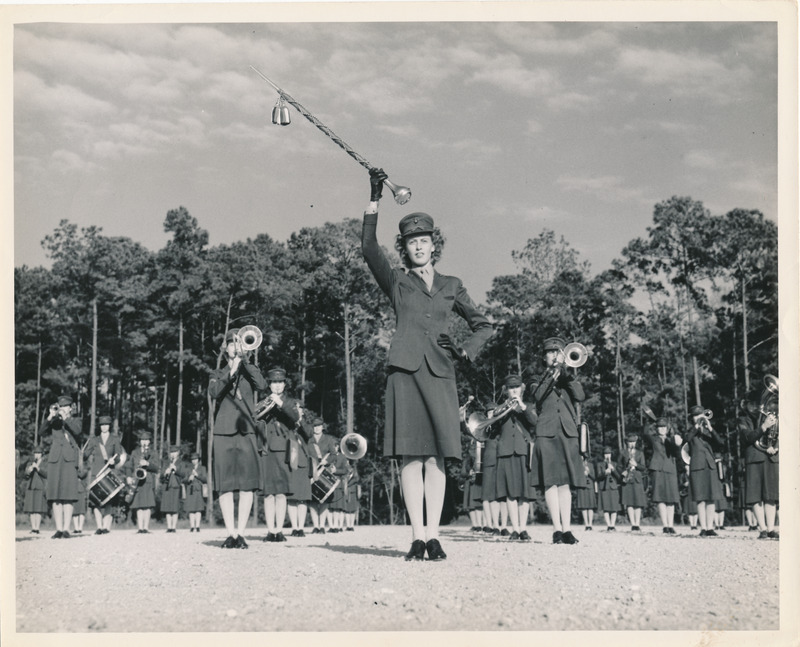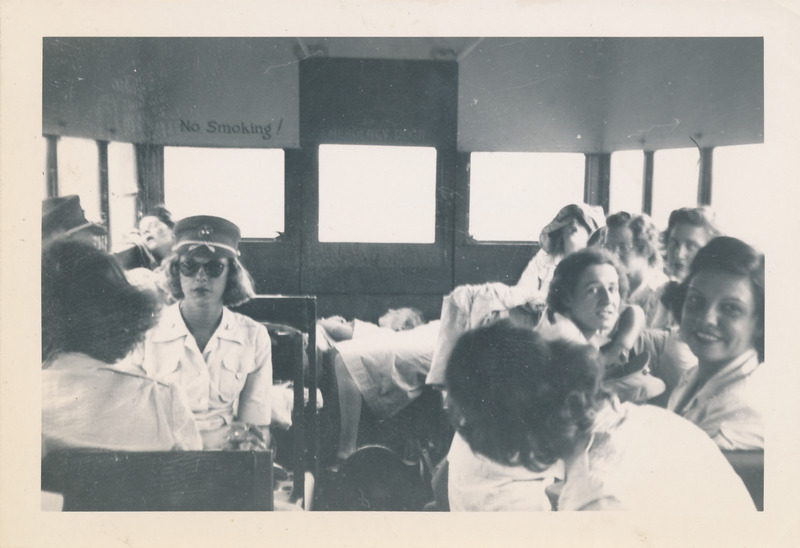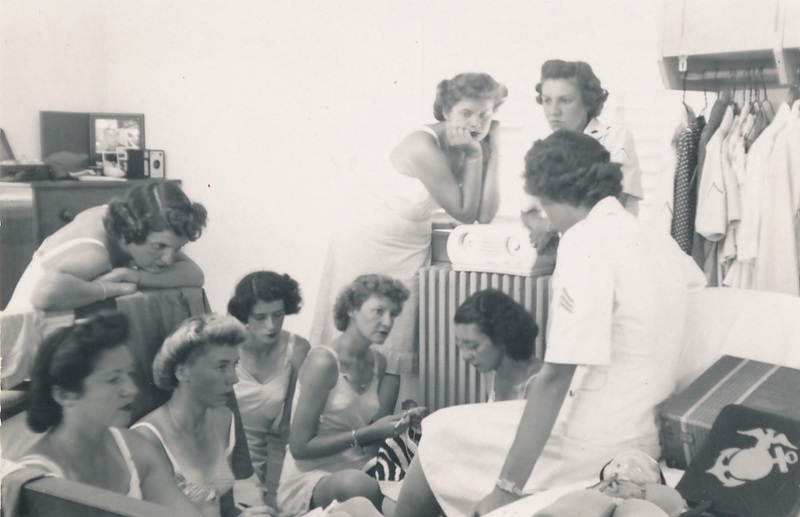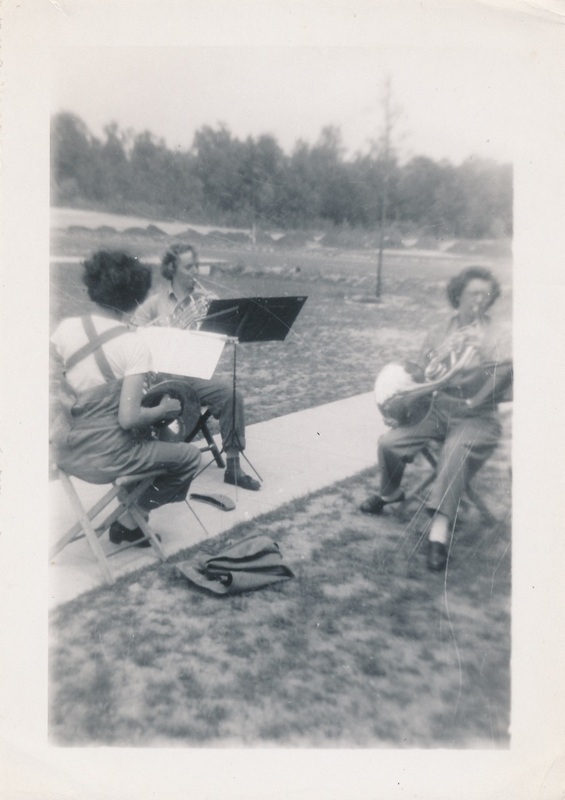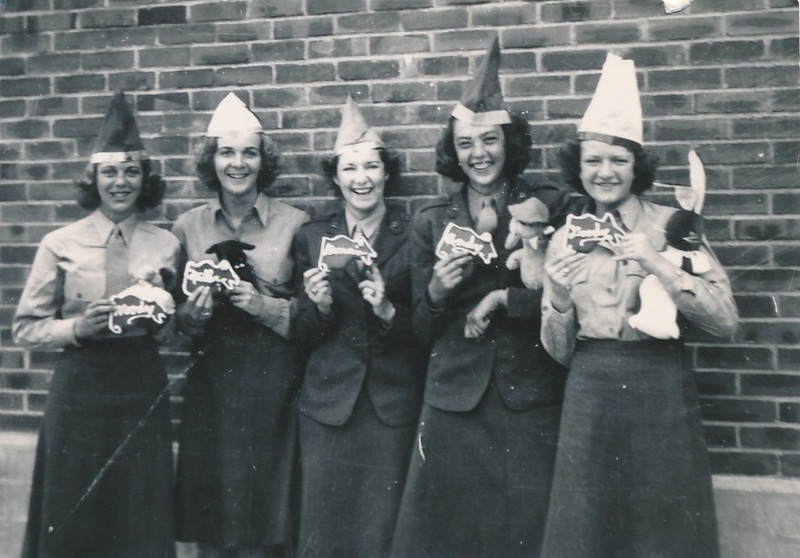Routines and Regiments
Practice, Practice, Practice!
Even though they weren't on the front lines, the MCWRB was still strictly regimented by their superiors. The band's barracks had to be thoroughly cleaned every morning, and they spent much of their time practicing songs, doing marching drills, and rehearsing for the various revues, concerts, and parades they would perform at. During the beginning of their enrollment, they also attended classes about Marines history, organization, and culture taught by lieutenants.
I can see the point [in discipline]. With all these girls if they didn't do that, what in the world would we accomplish during the day? Not anything like we do now.- Eleanor Jones
Home Away from Home
The women still had free time, however. When they could catch a break, Eleanor would go on walks around the army base and explore the surrounding woods. The base had a recreation center with a library, had bowling and dancing events, and offered soda and ice cream. Eleanor also went to the base's theater and Post Exchange (PX) with her friends often. The theater would show older movies, and the PX offered mail services, necessities like toiletries and underwear/stockings, and snacks. She would even sneak out of the base on occasion in order to go to the ocean or to explore the nearby towns.
Eleanor was quick to make friends at the barracks. One of her first was Ruth Grams, and though she was in a separate choir and wasn't always around, they still kept in touch. Betty Sorbel, Charlotte Owen, the MCWRB's conductor, and Margaret Merrell—among several others—were some of Eleanor's closest friends from her time in the Marines.
The kids here are from all over the country […] we hear Brooklyn (is that something!), New England, Western [accents]. What a conglomeration!
- Eleanor Jones
A Typical Day
When Eleanor was at Camp Lejeune, her day would begin quite early. In the words of Eleanor, “The bugle blows at fifteen to six, and we have to dress, wash, and fix our bunks. Boy, oh boy, oh boy! The minute that bugle blows everyone hits the deck, but FAST.” Their days at Camp Lejeune were held to the same expectation as the men. In one letter to her family Eleanor describes this as, “We live just like they do in the identical environment with the same discipline,” meaning that she and her fellow bandmates were held to a standard and had strict routine as the men.
Although the discipline at Camp Lejeune was strict, the bandmates still had spare time where they would bike, relax on the grass, or lounge around. The day would typically end around 10 pm, when everyone would be in their bunks and it was lights out.
In Eleanor's letters and journal entries, it is abundantly clear that her band members and herself very much adored their roles in the Maire Corps Band. She was overjoyed and proud when the band would perform in cities, venues, and social events. Eleanor states that their audience was always impressed with their abilities. In a letter to her family on September 9th, 1944, she says “We dedicated our theatre concert tonight to the Waves. They were very worthy of it and it was sincere dedication. They felt very pleased and honored, because it is seldom enough that anyone on this marine base does anything nice for them.”
When the band was traveling on the road, they were often greeted by the public in different ways. Oftentimes, many cities would welcome the band with open arms and admired the MCWRB for their hard work and determination towards the war effort. In other cities the women were taunted and were treated very harshly by the public. Eleanor had stated that it depended on the city; each city responded to the all-female band differently. There was always enthusiasm for the marine corps, but there was rarely support for the women in the MCWRB.


